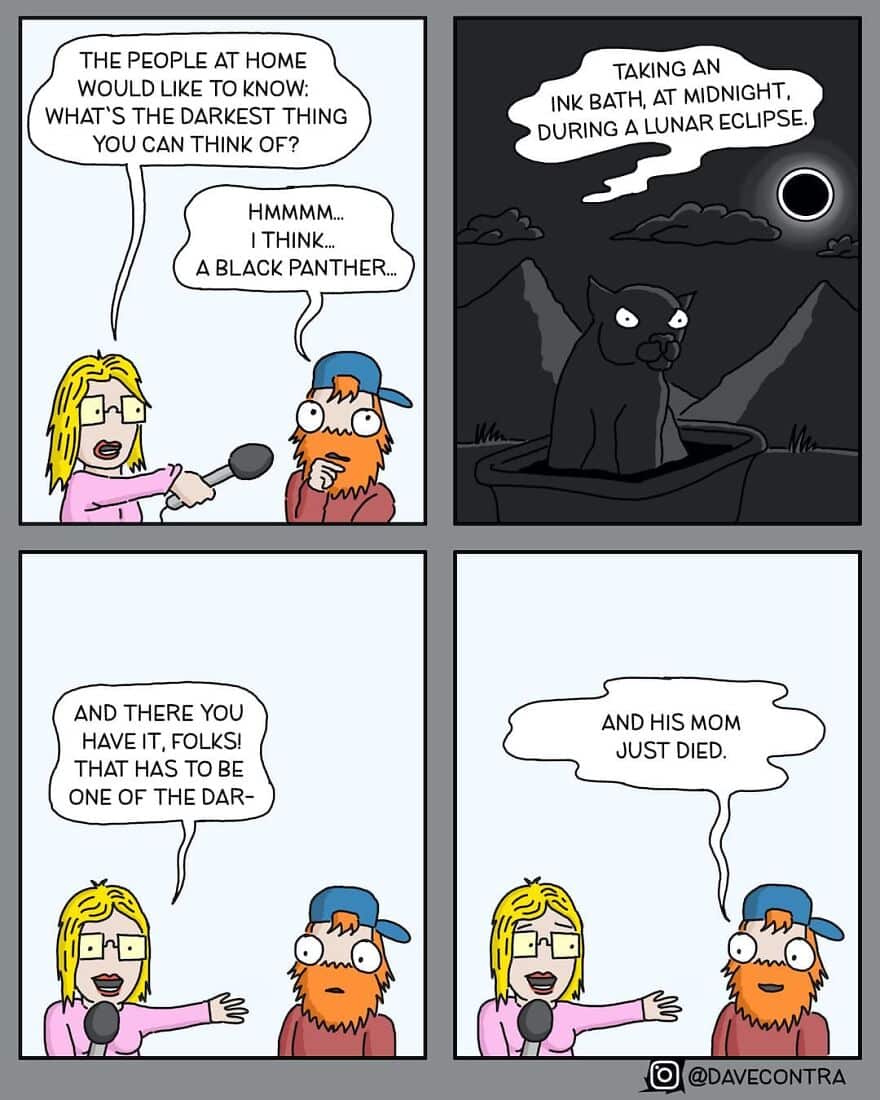this post was submitted on 01 Nov 2024
357 points (97.6% liked)
Comic Strips
12602 readers
3063 users here now
Comic Strips is a community for those who love comic stories.
The rules are simple:
- The post can be a single image, an image gallery, or a link to a specific comic hosted on another site (the author's website, for instance).
- The comic must be a complete story.
- If it is an external link, it must be to a specific story, not to the root of the site.
- You may post comics from others or your own.
- If you are posting a comic of your own, a maximum of one per week is allowed (I know, your comics are great, but this rule helps avoid spam).
- The comic can be in any language, but if it's not in English, OP must include an English translation in the post's 'body' field (note: you don't need to select a specific language when posting a comic).
- Politeness.
- Adult content is not allowed. This community aims to be fun for people of all ages.
Web of links
- [email protected]: "I use Arch btw"
- [email protected]: memes (you don't say!)
founded 1 year ago
MODERATORS
you are viewing a single comment's thread
view the rest of the comments
view the rest of the comments

s/lunar eclipse/new moon/
Lunar eclipses turn the moon a ruddy red color. New moon (opposite of a full moon) is darker.
Darker doesn't always mean blacker. Symbolically, a blood moon is "darker" (as in "ominous" and "eerie") than a new moon. The red color has many meanings, ranging from passion to wrath. Even after science emerged to explain such phenomena (the red color being just the longest wavelength part of visible electromagnetic spectra, the blood moon being just a combination of physical and astrophysical factors such as Rayleigh scattering and planetary alignment, etc), the blood moon still gets a "bad omen" vibe nowadays, a vibe that's absolutely not present during new moons (it's worth mentioning that they happen once or twice every month, differently from a blood moon which is a somewhat-rare event).
Yes! But the joke seems to be that he's describing literal darkness, and then pivots to disturbing darkness.